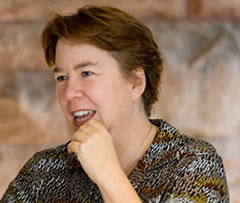In 2010, Elspeth Brown, a history professor at the Munk School of Global Affairs, had been in a relationship for 13 years when her female partner decided to transition to a man.
Brown searched online for stories of other people in her situation, but found nothing. So she decided to interview partners of trans people herself, and turned it into a research project. Over the next few years she spoke with 50 women in the U.S. and Canada who were in relationships with women transitioning to men. (Since then two of the women she interviewed have themselves decided to become trans men.) “It was wonderful to connect with other partners and learn about the tremendous range of experiences,” Brown says.
Brown’s aims are to record the stories of partners of trans men in their own words and to expand the number of sources of information available about trans families and relationships. Up until recently, she says, the history of trans people has been written mostly based on documents such as police and medical records, which have typically provided a negative account. “My goal is to create an archival base from which people can write trans-positive histories.”
Her interview subjects have ranged in age from 20 to 50-plus, and there are significant differences in the experiences they’ve had, says Brown. The partners of younger people are more likely to have come out directly as trans and into an existing trans community whereas the partners of the older subjects had come out initially as lesbian, but didn’t feel comfortable in that identity. Only later did they come out as trans.
Brown’s oral histories of trans partners are part of a larger research project she’s directing called the “LGBTQ Oral History Digital Collaboratory.” This project connects 200 life stories of LGBTQ people in a virtual workspace where research team members can share ideas.






